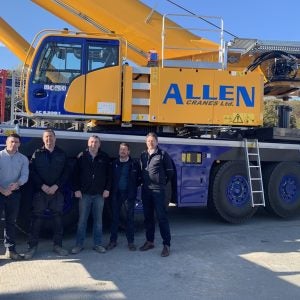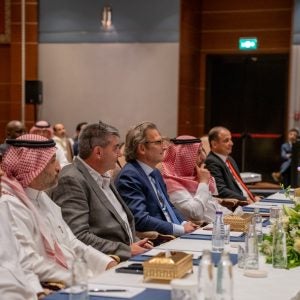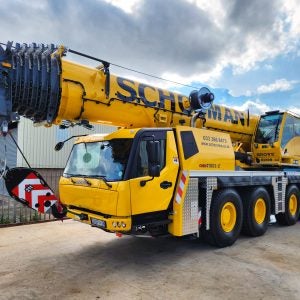That careful matching of capacity to demand applies to crane fleets overall, and to crane manufacturers. Since the exuberant years at the start of the millenium, and the global financial crisis that followed, fleets and manufacturers have struggled with businesses that do not meet the demands of the market they work in.
At this year's Bauma, I and the rest of the Cranes Today editorial team had a chance to talk to some key players in the industry about how, ten years on from the crash, they are putting their businesses back on the right track.
I think it's fair to call Terex's sale of Demag to Tadano 'The deal of the decade', as I do in my article. This is a move that is sure to spark concern among some crane owners. A couple of years ago, I spoke to Ludo Sarens about the mobile crane market.
With decades of experience running one of the world's biggest fleets, he knows the industry as well as anyone could. Even then, with four main players selling all terrains globally, Sarens was frank in his concern that crane buyers were facing limited options.
Equally frank in his analysis is Terex CEO John Garrison. Talking to me at Bauma, he made clear that the alternative to a consolidated market in all terrains is simply no market at all.
This is a highly specialised industry, that is, by global business standards, quite small. Unless companies are big enough to compete for sales and offer support around the world, profitably, they won't exist.
One company that once, by its own CEO's assessment, looked like it might not exist at all is Manitowoc. Barry Pennypacker gave a brutally honest take on the challenges the US firm faced when he joined, just before the last Bauma. Now, as a standalone crane business, it has made a remarkable return to form. Doing that has relied on listening to customers, speeding research and development, and taking tough decisions on optimising production capabilities.
Arcomet too, again by its own CEO's assessment, also came close to ceasing to exist. Again, the process of getting back on track has taken time, and has cost money: not least in expensive debt. Now, with Arcomet and Matebat effectively merged as a single business, Uperio, Phillipe Cohet is setting a path for a sustainable business.
Before the crisis bit, Chinese manufacturers made a big push into Europe and the US, with huge and exciting stands at Bauma and ConExpo. These plans too hit a wall. But, as Sotiris and I learnt in interviews and press events at this Bauma, a more cautious, but still ambitious, approach aims to reap returns.
Many may miss the days when dozens of manufacturers served regional markets around the world. As a Brit, with family roots in the Grantham area, it saddens me that Coles and other UK mobile crane manufacturers no longer exist. But in an industry where everything—capacity, roadability, and production—must be optimised to remain profitable, the only alternative to consolidation will be collapse.
Will North, Editor
will.north@cranestodaymagazine.com






